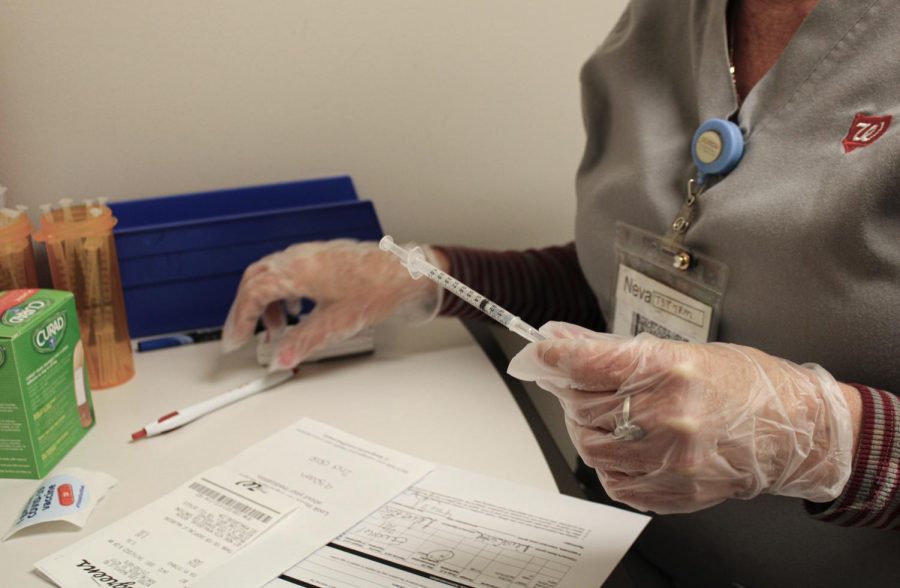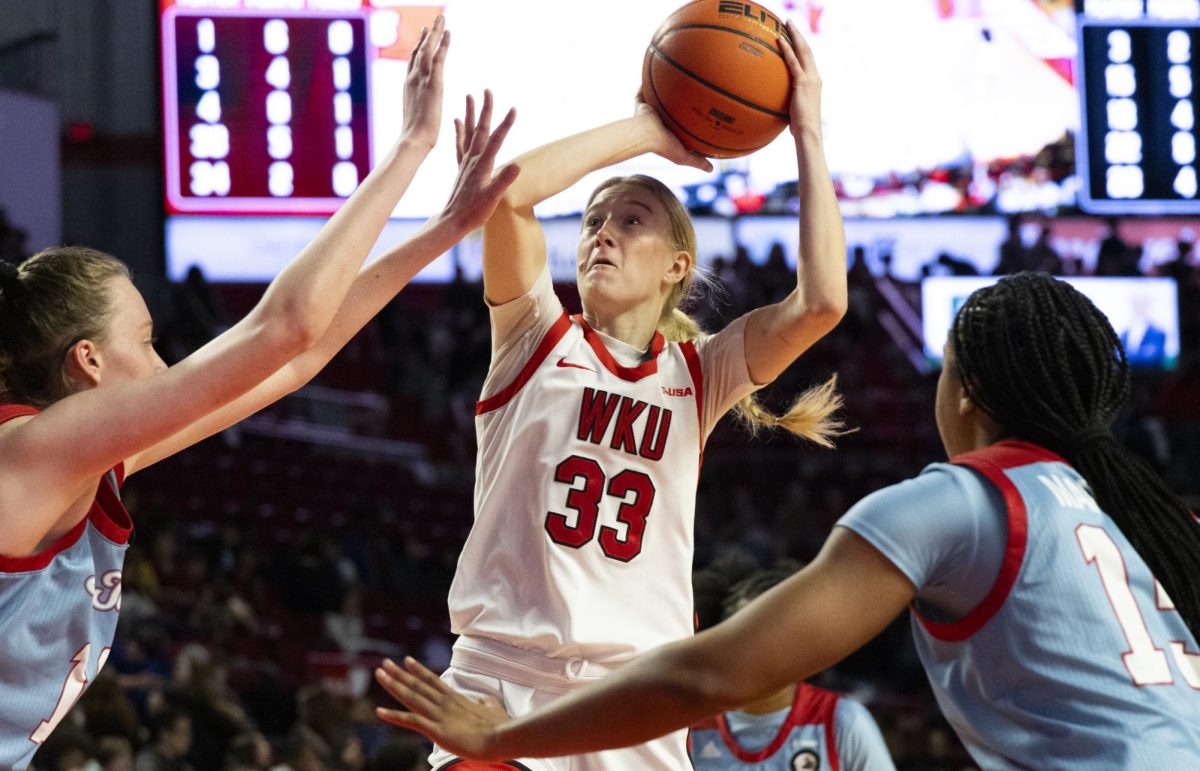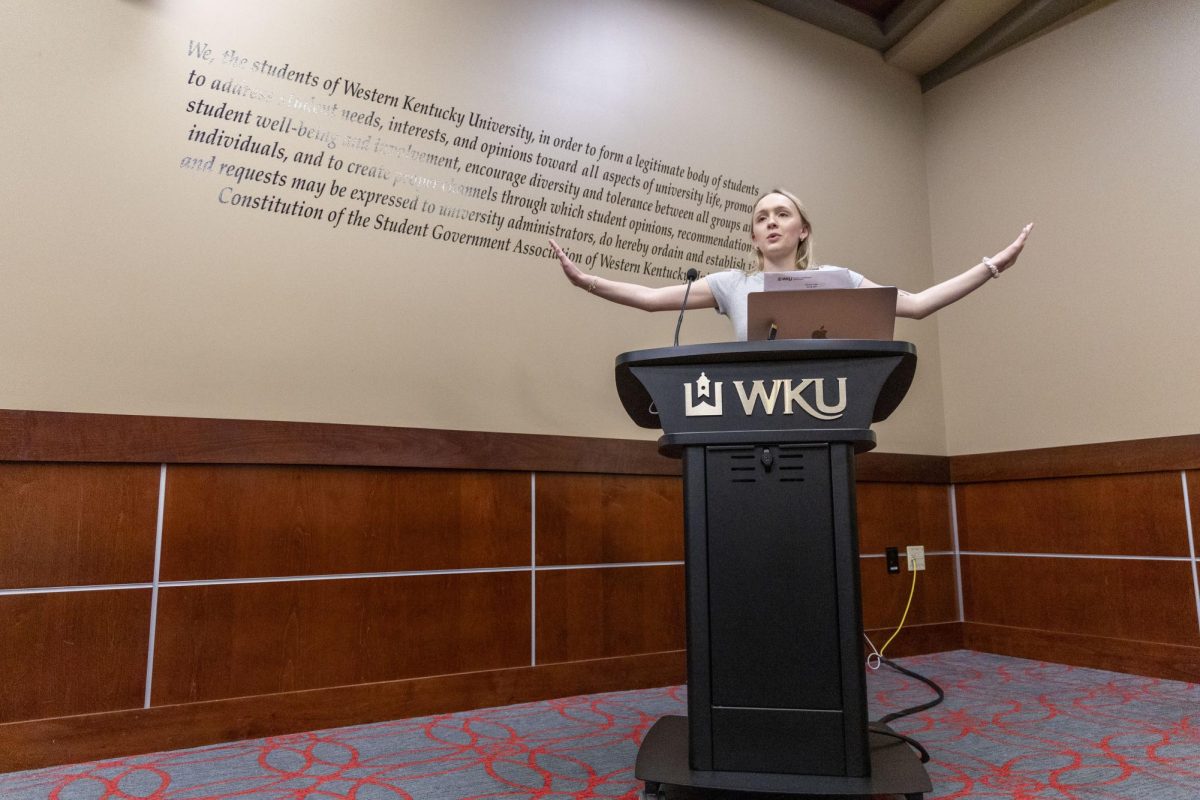Vaccination requirements not included in fall semester plan
Jace Lux, WKU’s director of media relations and university spokesperson, explained that the university looks both to the CDC and its in-state peers to set COVID-19 policies.
June 24, 2021
WKU will not require students or faculty to be vaccinated or show proof of vaccination, even though 531 other colleges in the U.S. will require students to be vaccinated.
Many colleges throughout the country are requiring students to become vaccinated including Indiana University. IU has received backlash after announcing the requirement, and has led to eight students suing the university arguing that the requirement is a violation of the 14th Amendment.
In Kentucky, Berea College is the only higher education institution to require students to be vaccinated, according to the Chronicle of Higher Education.
Seeing other universities put requirements in place raised the question if WKU will do the same. Currently, the university will not put any requirement in place but in the fall semester COVID-19 guidelines, WKU provides a list of reasons why students should get vaccinated.
“These vaccines are available through an emergency use authorization by the CDC,” Bob Skipper, WKU director of media relations said. “We did not feel it appropriate to require students, or employees, to take it under that circumstance. We still strongly encourage everyone who can be vaccinated.”
Susan Eagle, a public health professor, said WKU does not mandate any vaccinations for students and faculty, but does recommend certain vaccines that are available at Graves Gilbert Clinic.
“It does not look like WKU will be requiring proof of COVID-19 vaccination status,” Eagle said. “In part because there is no requirement to demonstrate proof of any other vaccine.”
While there are no prohibitions for a university or anyone to ask about someone’s vaccination status, a person is always able to decline to share their vaccination status if they wish to.
“Culturally speaking, we tend towards regarding this as private medical information and that asking infringes on an individual’s right to privacy,” Eagle said.
Based on the fall semester COVID-19 guidelines, anyone on campus will not be required to show proof of vaccination in order to attend class or events, or be challenged for wearing or not wearing a mask.
“WKU is placing its trust in all members of the campus community to follow these policies, and control of the pandemic will depend on everyone doing their part,” Eagle said.
Many people argue that universities or employers cannot ask about vaccination status due to the federal Health Insurance Portability and Accountability Act, however HIPAA only protects health information held by healthcare providers and to avoid the disclosure of health information, Eagle said.
“The value we place on individual privacy is probably part of the reason HIPAA is so widely misinterpreted,” Eagle said. “In fact, HIPAA does not prohibit universities from asking students, faculty, or staff about their vaccine status. Those bound by its provisions are primarily healthcare and health insurance providers—employers are not generally bound by HIPAA.”
COVID-19 vaccines are still available at Walgreens, CVS Pharmacy, and the Medical Center at Bowling Green.
“Vaccination helps us achieve herd immunity and protect not just ourselves, but others in our communities who may not be able to get vaccinated,” Eagle said.
Digital News Editor Debra Murray can be reached at debra.murray940@topper.wku.edu. Follow her on Twitter @debramurrayy













